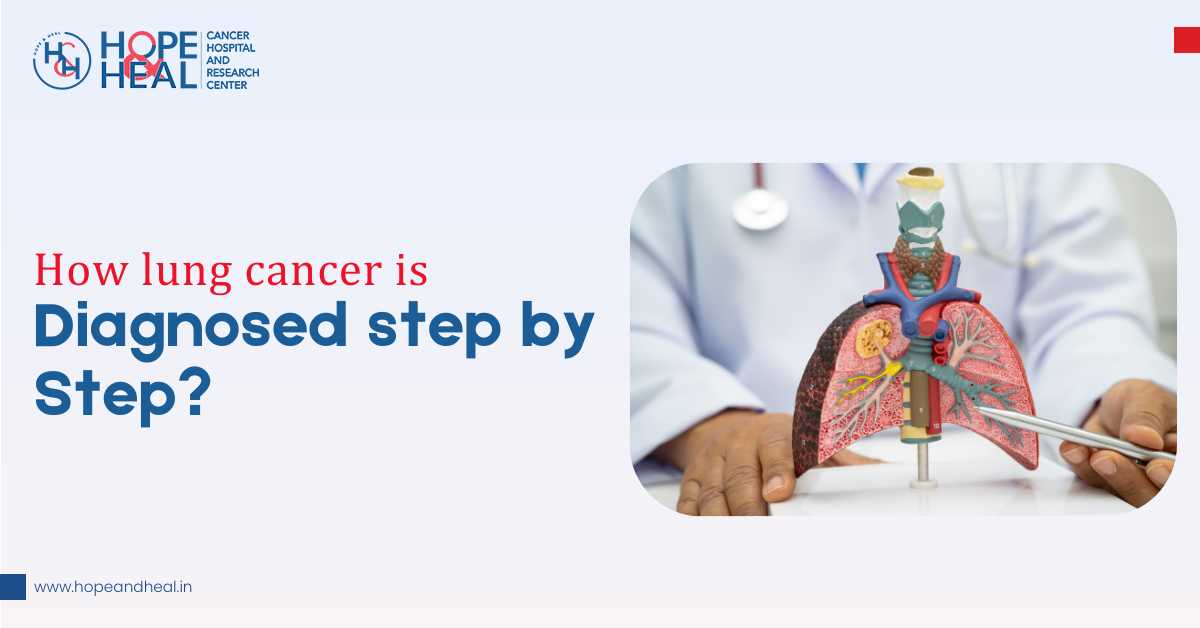What WHO stated, is approximately 85% of lung cancer cases are associated with smoking. Hence, we can say that smoking is the leading cause of lung cancer. If you smoke, you’re at the same risk. Exposure to secondhand smoke, also known as passive smoking, affects the lung cells, which may lead to gene mutations.
A malignant tumor can grow in the airways/bronchi or air sacs/alveoli. Damaged lung cells multiply uncontrollably and create a mass or more tumors. Malignant tumors mean cancerous and benign means non-cancerous. For appropriate diagnosis and dedicated treatment, visit the best lung cancer hospital near you.

Here are five risk factors for lung cancer:
Smoking
Cigarette smoking is the leading reason for lung cancer (more than 85%). And, if you’re an active smoker, not only you’re putting yourself at risk of lung cancer but also you’re increasing the risk of lung cancer for people around you. Smoking damages the cells that line your lungs means when you smoke, full of carcinogens/cancer-causing substances that enter your lungs and contribute to changes in the normal/healthy lung tissue.
Family History
Family history may put one at the risk of lung cancer but it may not be that direct. For instance, if a person has a family history of lung cancer in his/her first-degree relative and he/she smokes cigarettes or is exposed to secondhand smoke, the chance of developing lung cancer may be higher in this case. A family history of lung cancer alone might not be the reason for that person to develop lung cancer.
Radon Gas
As per various studies, radon is the leading cause of lung cancer among non-smokers. Radon goes off fast and becomes tiny radioactive particles and when these particles are inhaled damage the cells that line the lungs. Small-cell lung carcinoma and adenocarcinoma are two common lung cancer types associated with inhaling radon. Consult the best lung cancer treatment doctors.

Asbestos
Asbestos can result in both non-small cell lung cancer and small-cell lung cancer. Inhaled or ingested asbestos fibers have been associated with an increased risk of lung cancer. However, the percentage of lung cancer caused by asbestos is low. Shortness of breath, coughing up blood, and chest pain are prominent signs here.
Vitamin Supplements
Have you been taking food supplements for a long time without medical consultation? Do not do that. Some research has linked a higher intake of Vitamin B9, Vitamin B12, and Vitamin B6 to the risk of lung cancer.
Lung cancer can spread to the liver, brain, and bones and it can also be possible that cancer starts in other body parts and spreads to the lungs. The very first sign of lung cancer is a cough that doesn’t heal with time. Visit the best lung cancer hospital for advanced diagnosis and treatment.
Other prominent signs include shortness of breath, loss of appetite, weight loss without trying, chest pain, wheezing, hoarseness, shoulder pain, unexplained fatigue, etc. Be sure to seek medical attention early on noticing such signs. It might not be cancer but other lung/respiratory systems concerning health issues. Thus, proper health evaluation or diagnosis is vital to treatment and healing.






